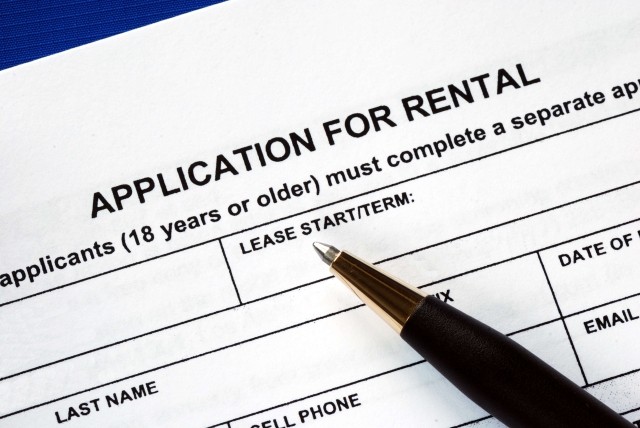Background and credit checks are very important parts of the tenant screening process. Reviewing credit scores can help landlords determine if a prospective tenant will pay rent on time. However, what should you do if an applicant doesn’t have any credit history? Here are six ways to minimize your risk if you choose to rent to an applicant with no credit.
1. Discuss the Issue with the Applicant
Although having good credit might be one of your requirements to rent, having bad credit or no credit shouldn’t be an automatic dismissal. The applicant could be a college student or a first-time renter, among other reasons. Even tenants with high credit scores might have experienced some financial problems at one point in life, so it’s important to communicate with potential applicants about why they don’t have a credit history.
2. Request the Applicant’s Proof of Income
If an applicant doesn’t have a credit score, their proof of income can indicate their financial ability to pay rent. You can verify their proof of income by requesting to see current pay stubs or bank statements, but there are multiple ways renters can show proof of income, especially if they are self employed. If you wish, you can also reach out to the applicant’s employer to determine how long they’ve been employed. If the applicant has a steady income and has been employed for at least a year, you may feel more comfortable accepting their application.
3.Take a Closer Look at the Applicant’s Background Check
If the applicant isn’t a first-time renter, it’s time to take a deeper look at their rental history. Look at their background check for any previous evictions. If you use Apartments.com’s tools for online tenant screening, you’ll have access to criminal and eviction reports from TransUnion. You can also ask the applicant to provide proof of rent payments via receipts from the past year as further proof that they have a good payment track record. Another feature you’ll find only on Apartments.com is support for co-signers, guarantors, and co-applicants, which you may need to request if the applicant has no credit. If you need more information to make a decision, you can request supporting documents from potential tenants directly on our platform. Get all the information you need to find the right tenant quickly and easily.
Although it is possible to rent to applicants with a previous eviction, accepting a tenant with no credit, a history of late payments, and multiple evictions probably isn’t the best choice for your rental property because there’s a larger risk. If someone has no credit but a steady income, no evictions, and a history of paying rent on time, the applicant could be a great fit for your rental property. Use your discretion and approve the tenant that you believe would be the lowest risk for your business.
4. Contact Landlord References
You can confirm the applicant’s rental history and payment track record by reaching out to their current and/or former landlords or property managers. If they claim that the tenant has a history of paying late rent, damaging the property, and/or violating their lease, it’s probably best to decline the application. On the other hand, if the applicant’s references are positive and they pay rent on time, not having credit history may not be as important. If you want to address your concerns further, you can also request reference letters from previous employers, professors, etc. to see if they are responsible and trustworthy.
5. Require a Higher Security Deposit or First and Last Month’s Rent
Requiring someone with no credit to pay a higher security deposit and/or first and last month’s rent can help mitigate risk. Since there are legal limits for how much you can charge for a security deposit, make sure to research your state and local laws to ensure you are compliant. Charging a higher deposit is a common industry practice because it allows landlords to protect themselves financially if the tenant doesn’t pay rent later on.
6. Require a Cosigner or Guarantor
Having a tenant get a cosigner or guarantor is another standard industry practice for applicants with bad or no credit. Requiring a cosigner or guarantor helps alleviates risk because they ensure rent is paid if the tenant doesn’t pay in the future. Even though the terms are often used interchangeably, there are several differences between cosigners and guarantors.
Cosigners and guarantors both accept financial responsibility for rent, fees, and potential damages. One main difference between the two is a guarantor isn’t viewed as a tenant and is not allowed to live in the property, while a cosigner will sign the lease and has the right to occupy the unit. Although a cosigner may not always live on the property, they will be immediately responsible for paying rent since they are considered a tenant. A guarantor is only responsible for paying rent when the tenant defaults and the landlord has exhausted their other options when attempting to collect rent.
Reference our articles about how to handle cosigners and how to get a cosigner involved after a rental dispute to learn more. Also, keep in mind that both cosigners and guarantors should go through the screening process.
Should Landlords Rent to a Tenant with No Credit?
It’s not ideal, but it is possible to rent to a tenant without a credit history because there are multiple things you can do to protect yourself as a landlord. Since there are several reasons why someone might not have a credit history, it’s important to communicate with the applicant before making assumptions and denying their application. Requesting proof of income, reviewing rental history, charging a higher security deposit, and requiring a cosigner or guarantor can help you cover your bases. No credit isn’t always a bad thing. You could help someone move into their first apartment, and you might even gain a long-term, responsible tenant by being flexible with your rental policies.











